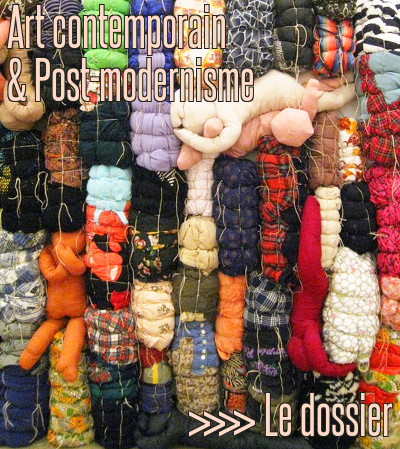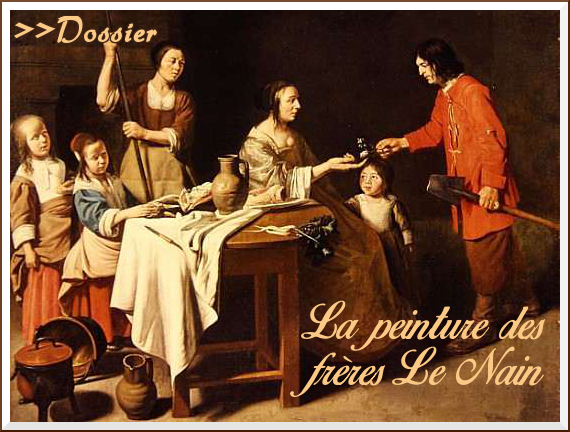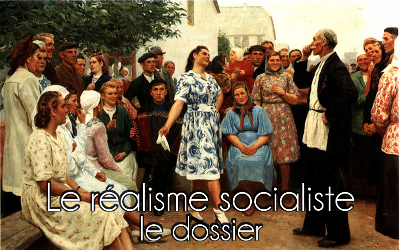Post-Modernism has nothing to do with dialectical materialism
Submitted by Anonyme (non vérifié) Post-Modernism has nothing to do with dialectical materialism. Dialectical materialism is a science, produced by theoreticians, carried by ideological movements and states, based on concepts very well defined. Post-modernism is an ideology born in the French and US universities, promoting “deconstruction” as the path of “total liberation”.
Post-Modernism has nothing to do with dialectical materialism. Dialectical materialism is a science, produced by theoreticians, carried by ideological movements and states, based on concepts very well defined. Post-modernism is an ideology born in the French and US universities, promoting “deconstruction” as the path of “total liberation”.
This concept of “deconstruction” can already be found in the 1920's-1930's, with the artistic avant-gardes: surrealism in France, cubism in Czechoslovakia, futurism in Russia, all pretending to be artistic and psychological aspects of a “total” revolution that the working class should do.
Then, in the 1960's-1970's, the German-American “Frankfurt School”, with Adorno and Marcuse, promoted also a “deconstruction”, through “negative dialectics” and “revolt” against the principle of “authority”. We have also “Existentialism”, with Jean-Paul Sartre, Frantz Fanon and Albert Camus, stylizing the individual “refusal”, advocating the revolutionary “breakthrough” through subjective violence as self-liberation.
Then came a new form, expressing the same apologia: the “queer” movement, calling again to “deconstruction” instead of materialist recognition of the dialectical aspect of reality.
Again, idealistic concepts would be reality: racism, sexism, authority, homophobia, islamophobia, etc. etc. in a never ending list where, in a unilateral way, reality would be bad and its “building” should be “deconstructed”.
 Those people act against the people, who is the real maker of history ; they reject the principle of historical progress, of dialectical evolution of matter. They appear as “radicals” through ultra-democratic demands; they are in fact a fifth column helping the reaction.
Those people act against the people, who is the real maker of history ; they reject the principle of historical progress, of dialectical evolution of matter. They appear as “radicals” through ultra-democratic demands; they are in fact a fifth column helping the reaction.
The continuity of this idealistic approach is very clear; that it is carried by the petty bourgeois “radicals” is very obvious; its danger should be never forgotten, as it looks “progressive” but it is not!
For example, when we take a look at the Indian Maoist movement, we can see that they develop topics in an approach which are democratic, but can sometimes unfortunately easy be understood as “queer” topics. This the reason why Arundhati Roy could express her “sympathy” for the Naxalite cause – when she's one of the main figure of post-modernism in the world, notably for the book “The God of Small Things” which is a classical of “post-colonial” critical literature.
Arundhati Roy may go in the sense of progress on some points; in literature she helps the reaction, she is no Sarat Chandra Chattopadhyay (the great novel writer from Bengal), no Ritwik Ghatak (the great filmmaker from East Bengal), no Satyajit Ray (the great filmmaker from West Bengal).
 Those artists were, in their artistic content itself, serving the people, contributing to the democratic path, even if as individuals they had complicated point of views. Whereas the bourgeois bohème artists are easily “revolutionaries”, with truly bourgeois decadent content.
Those artists were, in their artistic content itself, serving the people, contributing to the democratic path, even if as individuals they had complicated point of views. Whereas the bourgeois bohème artists are easily “revolutionaries”, with truly bourgeois decadent content.
We had the same problem with some “avant-gardists” having supported the Communist Party in France, like Picasso or Eluard. The result was a total ideological contamination at the level of culture and therefore a good contribution to the collapse into revisionism.
This is why we stress the question of culture, upholding Balzac, Abraham Bosse, the brothers Le Nain, Molière... Artists that, if we follow, bring us on the path of socialist realism.
This is, of course, the contrary of what do the Canadian “Maoists” who are nothing more than Trotskyites, a strict equivalent of the “fourth international” of the 1970's-1980's.
 A good example for that is given when we read “Hasten the Revolution! Remember Comrade Leslie!” - which is the title of a statement on Leslie Feinberg of the “Proletarian Revolutionary Action Committee and the Proletarian Feminist Front- Toronto”, linked to the Canadian Revolutionary Communist Party.
A good example for that is given when we read “Hasten the Revolution! Remember Comrade Leslie!” - which is the title of a statement on Leslie Feinberg of the “Proletarian Revolutionary Action Committee and the Proletarian Feminist Front- Toronto”, linked to the Canadian Revolutionary Communist Party.
In the statement, we can read that « We also remember comrade Leslie’s fierce commitment to international solidarity through hir work with the Cuban people. »
Why « hir » ? Because it is a mix of his and her. In the same way, Leslie Feinberg used the word “zie”, an invention used to combine both “he” and “she”; the website she ran was called “transgender warrior.” We find here a construct which is practically the precise opposite of Stalin's lessons on linguistics, on reality.
Feinberg was a woman member of the Workers World Party, a curious mix of Trotskyism and Marxism-Leninism supporting Cuba and North Korea, and she was upholding the post-modern thesis of queer, going so far to negate that men and women exist, and herself taking products to make herself looking like a man.
 We have here a model of subjectivism, negating dialectical materialism, pretending that history is the struggle against “oppression”, that being progressive means to “deconstruct”, etc.
We have here a model of subjectivism, negating dialectical materialism, pretending that history is the struggle against “oppression”, that being progressive means to “deconstruct”, etc.
Again, the continuity of such a radical left bourgeois trend can only be stressed. And post-modernism is clearly, nowadays, a powerful enemy of dialectical materialism, a strong ally of revisionism, both helping each other.
And it should be rejected firmly, in the spirit of the East European democratic democracies of the beginning of the 1950's, in the spirit of Stalin in the 1930's-1940's in the Soviet Union, in the spirit of Mao Zedong in People's China in the 1960's-1970's.
